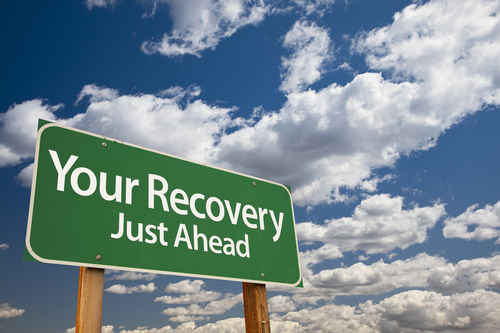CSMA Palo Alto drug rehab centers use a wide variety of addiction treatment options in the Santa Clara County area. These treatment facilities provide personalized treatment plans to deal with the distinct requirements of each individual battling drug abuse issues. With facilities and therapy programs similar to those found in luxury rehab centers, our Palo Alto drug rehab centers offer evidence-based therapy like behavioral therapy and medication-assisted treatment to ensure the best chances of recovery.
At CSMA, we believe that financial constraints must not prevent one’s journey toward sobriety. Hence, several payment accepted alternatives are offered to make treatment financially possible. Especially, for individuals with private health insurance, many treatment centers accept this mode of payment.
CSMA understands the significance of making rehab financially practical. As a result, people with medical insurance can utilize their insurance for this life-changing journey. Getting rid of addiction doesn’t need to be a financial burden, and CSMA accepts most health insurance prepares as a payment alternative.
Getting aid with addiction is a journey, but it’s a journey you don’t need to take alone. If you or a loved one is looking for help for addiction, bear in mind that help is offered.


Addiction treatment is all about patient-centric care, administered by a team of certified professionals who comprehend that everyone’s journey with addiction is different. It varies not just in regards to the degree of drug addiction but also their lifestyle, psychological make-up, and familial and social environments. A well-rounded treatment strategy demands a deep understanding of these elements.
Therapy is an effective tool in addressing the psychological elements of addiction. At our Palo Alto addiction centers, therapy is tailored to an individual’s needs and can consist of:
- Cognitive-behavioral therapy
- Individual therapy
- Family therapy
These healing interventions equip individuals with coping methods to prevent triggers and tools to keep sobriety in the long term.
Drug addiction can have an extensive impact on a person’s life but also their friends and family. Family therapy can be essential in the recovery procedure, helping households understand addiction and the role they can play in their loved one’s recovery. Individual and group therapy sessions are important to the addiction treatment program here.
Another important aspect of holistic treatment is physical health, which includes dietary counseling and exercise regimens. These physical elements significantly impact a person’s overall health and recovery procedure. Adapting to a much healthier lifestyle can considerably lower drug cravings and decrease the danger of relapse.
Long-term recovery from drug addiction needs constant support even after initial treatment. We understand this and provide aftercare services and follow-up programs to ensure enduring sobriety. These thorough follow-up procedures are important to prevent any possibility of regression and to hold the individual accountable for their recovery.
Drug addiction can feel overwhelming, however it’s crucial to keep in mind that recovery is achievable. Palo Alto Rehab Centers understand the importance of this journey and offer comprehensive treatment solutions to guarantee a go back to a healthy and productive life free of drugs and alcohol.


At CSMA, the addiction treatment approaches deeply integrate physiological, psychological, and way of life aspects, guaranteeing individuals can get used to life after detox. The counselors and treatment professionals at CSMA work collaboratively with clients to produce an impactful and efficient treatment plan post-detox. CSMA’s rehab centers have erudite addiction treatment professionals. Their wealth of experience and knowledge make navigating withdrawal and subsequent addiction treatment more workable and effective. The addiction treatment specialists fully comprehend detox’s physical and psychological challenges and consequences.
They offer customized services to satisfy each individual’s specific requirements and circumstances. Our rehab centers are equipped with a variety of therapy options for addiction treatment. These consist of:
- Group therapy
- Individual counseling
- Cognitive-behavioral therapy
- Motivational interviewing
Integrating these treatments into a personalized addiction treatment plan enhances the possibility of an effective recovery after detox.
CSMA Rehab Centers are encouraging, non-judgmental environments where those going through detox and seeking addiction treatment can feel safe and safe. They are sanctuaries where clients can embrace a substance-free way of life after detox. The addiction treatment services offered foster resilience, teaching patients to deal with everyday stress factors without going back to substance usage after detox.
In conclusion, life after detox in Palo Alto’s Rehab Centers is nothing to dread, thanks to the attentively designed addiction treatment methods that deal with individual requirements.
Experienced professionals, holistic therapy choices, and compassionate environments make the journey from detox to addiction treatment to recovery less difficult.
Among our rehabilitation centers’ essential differentiating functions is their holistic treatment method. They don’t merely rely on the detox process as the complete service to addiction. Rather, they promote and execute a comprehensive recovery strategy, promoting physical, mental, and spiritual health as essential elements of a person’s overall wellness. This robust post-rehab life strengthens the person’s resolve to avoid substance usage, making sure an effective social shift.
Our Palo Alto, CA treatment facilities are staffed with a dedicated team of professionals who bring a wealth of understanding and hands-on experience. This expertise contributes exceptionally towards developing personalized rehab and recovery plans to address each homeowner’s unique needs and challenges. These professionals supply continuous care and guidance, ensuring residents browse their rehab journey with minimal hiccups. These teams of professionals have undeniably added to numerous successful rehab cases in Palo Alto’s rehab facilities, cementing the city’s credibility as a reputable place for detailed rehabilitation.
Whether it is drug abuse or other types of addiction, duplicated rehab efforts will be needed for some patients. CSMA reassures those looking for help that their rehabilitation is our concern, no matter how challenging the journey might appear. This commitment to rehab and recovery can be seen in the tremendous efforts to refine the rehabilitation techniques, expanding the support group and mental health resources available to residents on their path to recovery.
The dedication to rehab and recovery in our Palo Alto, CA rehab centers lines up with our overall vision of a healthy and efficient community. Our efforts in recovery and recovery stand out in the location of mental health, wherein personalized treatment programs are designed keeping individuals’ specific needs in mind.


Our approach to addiction treatment in Palo Alto, CA continues to develop, integrating the current research and treatments to make sure a high success rate. This multi-pronged technique has led many individuals to preserve a drug-free life after treatment. Our intensive outpatient and inpatient programs concentrate on getting rid of drug use and addressing the underlying concerns that led to addiction in the first place.
The Palo Alto addiction treatment programs consist of numerous approaches such as detoxification, behavior modifications, counseling, alternative therapies, and continuous support even after treatment. The journey to a drug-free adult life is certainly tough, and with the continuous support provided by our Palo Alto rehab centers, the journey becomes possible and sustainable.
While traversing the course of recovery, individuals gain a new viewpoint and outlook on life. They can reconstruct their lives, re-establish healthy relationships, pursue their interest, and gain back control of their life when dominated by drugs.
Addressing drug addiction benefits the afflicted individuals and the society at large. It eliminates the social costs of drug addiction and adds to a healthier and more dynamic community.
Whether you or your enjoyed one is starting a drug-free life, this shift is a powerful process that needs support, understanding, and empowerment. This is specifically what CSMA rehab centers pledge to provide to individuals fighting with substance abuse.
At CSMA, we continually strive to use the maximum level of client care and support, showing our core belief in the possibility of recovery and a drug-free life.
FAQs
Drug Rehabs Near Palo Alto CA





